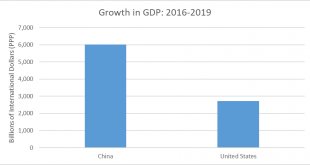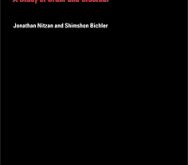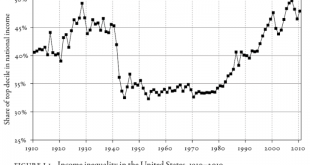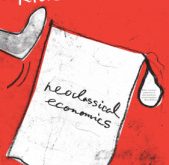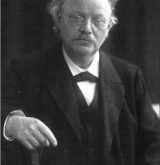from Dean Baker This is one in the “whose is bigger?” category; which country has added the most to their GDP over the last three years. There is not any particular reason anyone should care about this, except that Donald Trump has made a big point of touting something about how no one says China will soon be the world’s largest economy anymore. In fact, China’s economy surpassed the U.S. economy in 2015, using the purchasing power parity measure of GDP. This measure, in principle, uses a...
Read More »A reading list for economic heretics
from Blair Fix Do you think that the discipline of economics is a sham — an ideology masquerading as science? If so, here is a reading list for you. These 10 books have influenced my thinking over the years. Read them and join me in the journey of the economic heretic. 1. Capital as Power. A Study of Order and Creorder Jonathan Nitzan and Shimshon Bichler Few books offer both a compelling critique of mainstream economics and a bold alternative vision for political economy. But in...
Read More »1855 — the birth of causal inference
from Lars Syll [embedded content] If anything, Snow’s path-breaking research underlines how important it is not to equate science with statistical calculation. All science entail human judgement, and using statistical models doesn’t relieve us of that necessity. Working with misspecified models, the scientific value of statistics is actually zero — even though you’re making valid statistical inferences! Statistical models are no substitutes for doing real science. Or as a German...
Read More »Starting again, and relating the schools
from Geoff Davies The need for a new start in economics arises regularly on this blog site, for example: Economics — enslaved by the wrong theory And here is an edited extract addressing this issue from my book Economy, Society, Nature.. The point is not that ‘complexity’ gives rise to another ‘school’ of economics, but that it provides a general framework that accords with observations and is capable of accommodating many existing schools, but not all. Many of the ideas presented...
Read More »Wages of debt
from David Ruccio Well that didn’t go so well. . . Still, Elon Musk’s new Cybertruck would appear to be the perfect design for America’s contemporary dystopia. Its bullet-proof stainless steel alloy panels and transparent metal glass are tailor-made to keep its elite occupants safely guarded from attack. And even though the windows obviously need considerable improvement before production begins, and “despite ‘no advertising & no paid endorsement’,” Tesla has already received almost...
Read More »WEA conference: Going Digital
from Malgorzata Dereniowska Going Digital: What is the Future of Business and Labour? Welcome to the second week of the Conference which discusses recent contributions to the understanding of the digital economy and its consequences for business trends and labour challenges. Read the latest comments on the DISCUSSION FORUM which is open until December 9th. All papers are available HERE. You can participate in the Discussion Forum by commenting on specific papers, or...
Read More »Graphics from 4 empirical muckrakers – 3. Thomas Piketty — Modern Inequality
from Blair Fix I don’t think I need to say much about Thomas Piketty. He’s probably the most famous economist in the world. Since publishing Capital in the Twenty-First Century, he’s become an academic rock star. Many heterodox economists think Piketty’s theories of inequality are naive. I would be one of those economists. But this does not detract from Piketty’s empirical work. He’s a prolific inequality muckraker. Together with other researchers, Piketty has created the World Inequality...
Read More »Economics — enslaved by the wrong theory
from Lars Syll The more I learned about economics, the more I discovered a landscape that is surpassingly strange. Like the land of Mordor, it is dominated by a single theoretical edifice that arose like a volcano early in the 20th century and still dominates the landscape. The edifice is based upon a conception of human nature that is profoundly false, defying the dictates of common sense, before we even get to the more refined dictates of psychology and evolutionary theory. Yet, efforts...
Read More »The origins of MMT
from Lars Syll Many mainstream economists seem to think the idea behind Modern Monetary Theory is new and originates from economic cranks. New? Cranks? How about reading one of the great founders of neoclassical economics – Knut Wicksell. This is what Wicksell wrote in 1898 on ‘pure credit systems’ in Interest and Prices (Geldzins und Güterpreise), 1936 (1898), p. 68f: It is possible to go even further. There is no real need for any money at all if a payment between two customers can be...
Read More »7 Wall Street theories
from Ken Zimmerman Wall Street is about investing. To get a large return on money invested. There is no shortage of theories on what makes the markets tick or what a market movement means. Some of which influence investor decisions. The two largest factions on Wall Street are split between supporters of the efficient market theory and those who believe the market can be beaten. Although this is a fundamental split, many other theories attempt to explain and influence the market, as well...
Read More » Real-World Economics Review
Real-World Economics Review

